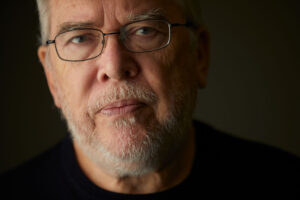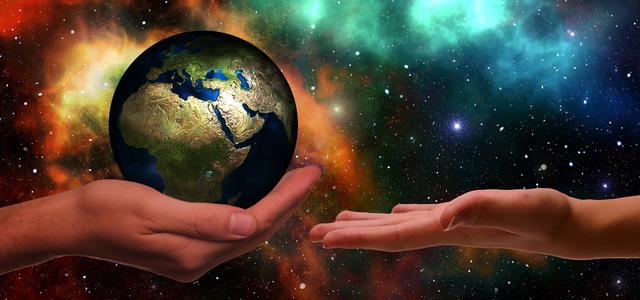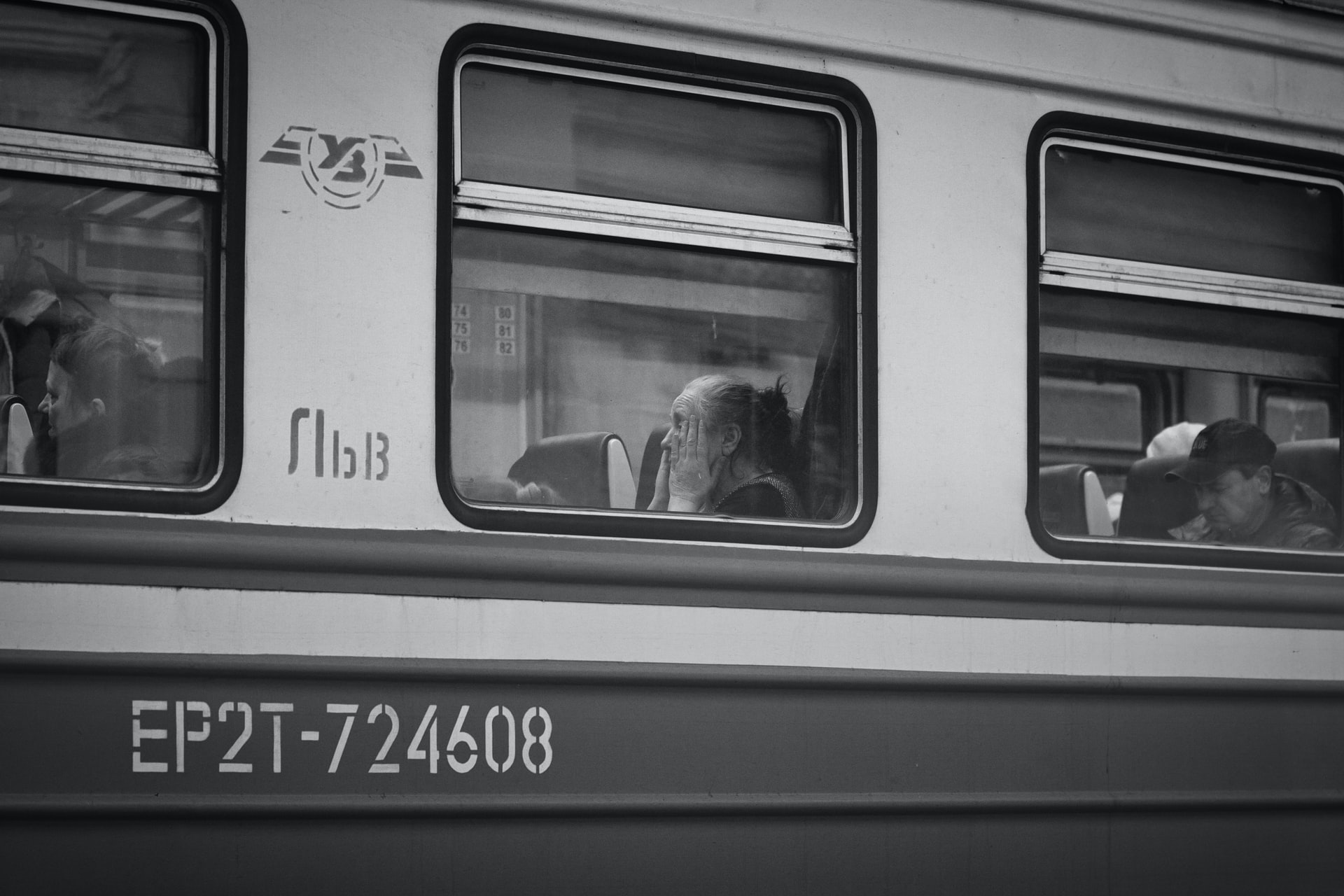Pass the Paradigm Please
Even when the apparatus exists, novelty ordinarily emerges only for the man who, knowing with precision what he should expect, is able to recognize that something has gone wrong — Thomas S. Kuhn
COVID-19 madness is generating a massive upheaval of social, political, and economic norms. I suspect the shocks to our civilization will be profound. We might be witnessing a revamp of our most fundamental beliefs and a consequent reconceptualization of reality.
But how can we be sure? Is all of the brouhaha really as it seems, or simply a delusion brought on by the transient strangeness of social distancing, alienating masks, and the relative stillness of isolation? Will we be brainwashed into believing there were no alternatives to the draconian measures we so passively accepted? Or eventually, be persuaded that none of it happened? That it was just another blip in the journey we call progress?
Even these questions are elusive for social and cultural transformations result less from shared sensations and more from alertness within individual minds that eventually cohere into a community of mind.
I have long been of the opinion that the West has been in transition from an industrial society, globalized and under the spell of neoliberal political and economic dogma, to a different level of societal development for at least the past decade. As the years flew past, and we watched capitalism flexing its steroid-enhanced muscles, we began to see past its façade. The litany of essential truths was incapable of gaining universal acceptance. But at that point reform stalled. Indeed all sectors of society seemed to double-down on the neoliberal doctrine, pursuing the indefensible with even more enthusiasm than before. The affluent accumulated more wealth, while the middle class started to collapse.
Like all disruptive events in transitional times, this pandemic has been confusing, ambiguous, and nerve-wracking. But also uncommonly enlightening. The wealthy elite has been working overtime to stymie any change of direction. They want to resume business as soon as possible. This is not surprising — they find the prospect of any alternative to capitalism disconcerting. There is too much to lose to give up without a fight — or at least that is the entrenched thinking. I am unsure to what lengths they will go to. But I know old strategies of resource acquisition, economic growth, debt, and repression are being even more enthusiastically applied.

Others, outside of the mainstream, unaware of political and commercial undercurrents, feel a liberating breeze wafting in the crepuscular light of dawn. But with the current chaos causing us to shut up shop, and nature demanding that we hit the reset button, how real is all of this? Are we actually charging headlong into a new era? Or are we fooling ourselves to think that the more empathic and abundant world we have been craving is at last within our grasp? As lockdowns lift, and life assumes a semblance of normalcy, will we immediately revert to what we were, or work on redefining who and what we want to become?
As far as we know, the only factor that makes humanity different from almost every species on the planet is our sentient nature. We are conscious of being here, in this place, at this time. We are able to invent sophisticated tools, review the past, and imagine different futures. As part of this heightened state, we cocoon ourselves in culturally-constructed belief systems designed to shield us from preventable risks and unseen hazards. But that, too, is a problem.
It is possible to view human history as an evolutionary encounter stretching over the centuries, punctuated by a series of pedagogical shockwaves. Galileo’s suggestion that the Earth orbited the sun was profoundly shocking. Einstein’s theory of relatively turned on its head everything we thought we know about how the universe works. The realization that our world contains many diverse cultures, values, and behavioural inventories, is almost as unsettling. To admit that the reality we zealously guard is not instinctively shared by others is tough to rationalize.
The nomads among us see the reality. For by traveling we expose ourselves to a variety of cultural norms and mindsets. Through immigration we take one further step, inviting those distinctive mindsets into our milieu. This enriches us both socially and aesthetically. It grows resilience, too, though not without some friction. Then digital communications technologies offer another dimension, allowing us to shuttle back and forth between different realities at whim — appropriating new knowledge and imparting the illusion of multicultural panache.
But wait. In these interactions, we have discovered there is no single right or wrong. No single moral purpose or form of justice. No one faith. No single way of thinking about humanity, or the human condition which, by its very nature, is eclectic. This is deeply disturbing. For when we encounter different realities and different truths, the confidence we have in our own belief systems are undermined, exposing us to the anxieties those constructs are there to protect.
As a result, our conditioned response has been to slaughter, suppress, or win over others to our version of reality. The correct version mind you. The “rational” truth. Given the inadequacy of that particular response, it follows we should overhaul our most underlying conceptions of who we are, and what it is that we most value. And this is why narrative is so important.
We are living in a world that typically defines itself by the past. Thus, in order to comprehend who and what we are becoming, we must understand what it is in our world that is coming to an end. It is easy to point to many old models that are no longer working as well as they used to. That has been happening for quite some time, but we went along with their flaws. Today could we be witnessing something far more fundamental? A paradigm shift perhaps?
Ideas cannot be understood in isolation. Indeed they can only be fully comprehended within the language systems that produced them. Likewise, every civilization and ours has not been exempt, fabricates new stories — about work, value, and education for example. These narratives give rise to new systems of power and how that power is exercised, which in turn shapes the society. It is worth noting that the prevailing narrative in our modern global society is sustained by those with wealth and power.
Since the Great Depression of 1929, boosted by an explosion in data and communications technologies and, more recently, machine intelligence and biometrics, the dominant meta- narrative in our society has venerated technocapitalism, driven by neoliberal assumptions, as the primary means to deliver economic growth, and thence affluence. Unfortunately, much of this belief system is delusional. Initially, it seemed to fulfil our wildest dreams. But it has failed. It has failed to deliver happiness, or even wealth, to a majority of people. It also has given rise to an unending cycle of desire and consumption that is ruinous — in effect creating a neofeudal society where a small, affluent elite, lord it over an increasingly impoverished serfdom. What has that got to do with COVID-19?
Because of a lack of international preparedness and coordination, muddled early information, and critical delays in understanding what policies would be optimal — in terms of both public health and economic viability — national responses to the current pandemic have been varied. This variety, of mostly untested measures, as well as a predisposition to react precipitously to authoritarian-induced fear, has brought the global economy to a shuddering halt.
Some countries now find themselves in a situation of social and economic decline as a result of imposing, and enforcing, a lockdown on their populations — an unprecedented procedure based upon political expediency rather than on scientific evidence. Never before has such a measure that isolates the healthy as well as the sick and infirm been enacted universally. It flies in the face of epidemiological science and previous epidemic policy, eschewing the notion of natural immunity. It also creates a daisy chain of new problems that those countries will need to address. But will the gravitational pull of the past prevail?
Governments are already having to navigate an immense amount of social stress. A forfeiture of public trust will probably follow, as they grapple with the immensely complicated task of restoring some semblance of economic viability. We must observe and listen now. Will the language they adopt reflect a pugnacious state of mind? Will they attempt to tell a skeptical public there was no alternative? And will we question that or simply fall asleep again?
Many of us have found the stillness, the seclusion, and the slower pace of life refreshing, if not a blessing. We have had time to breathe, go on family walks, and cherish nature. The COVID-19 outbreak has given us an opportunity to re-imagine and rebuild the foundations of a more just, equitable, connected, empathic, and viable civilization. It gives us the scope to recalibrate globalism and its impacts around social justice. It enables a more regenerative awareness to take root. But will we take the next step?
These themes are not new. They have been lurking in the shadows for some time — muted and inconsequential. Now they are coming into the spotlight to assume a more seminal role.
We stand at a point of evolutionary consequence. That is why men, women, and children all around the world are trying to express their present circumstances, explain it, exploit it, make it go away — or simply figure out what they can do about it. Inevitably this experience traps us in a confusion of conflicting ideals, conversations, messages, norms and images of emerging reality. Collectively it is giving rise to a new, multiphrenic, psychological disorder. But there is individual human agency even here.
It is generally accepted that each time we encounter a work of art or a piece of music our role is not merely that of a passive spectator. In effect, we play an active part by creating whatever meaning we find in that work. Our agency is potent — fusing creation with recreation.
If we apply this idea to the post-pandemic world we can break out of the arbitrary barriers and rules imposed upon us. We can reconstruct every facet of our society as co-creators in a new reality. Self-concept can be recast, as can community values. Moral and ethical discourse can be remade. Culture can be refashioned. Politics too.
When people see borders of any kind as imagined social constructions they are more likely and able to cross them, remove them, or rearrange them. When that point is reached we are able to describe in far greater detail what our world is struggling to become. We are able to examine the purpose for which human culture is created and for whose benefit. We are able to reflect on what the current culture is doing to us, think about making some changes, or exercising different choices to those we made in the past.
The COVID-19 pandemic is a brief moment in an expanded “now” of renewed awareness. It is the starting point for new forms of enlightenment, for deepening harmony within diversity and opening our learning to myriad models of consciousness, not because they are all on a par but because there we have no need to be limited to just one.
It surely makes sense then to take the opportunity offered by the global pause to craft the culture we will need moving forward — where less energy is used to power our needs, where manufacturing produces what is necessary rather than what is fashionable, where pointless work is eliminated, and where food and water is available to all. A culture of regenerative consciousness perhaps, where old notions of separation, from each other and from nature, endless economic growth, and pervasive competition, can finally be laid to rest.




